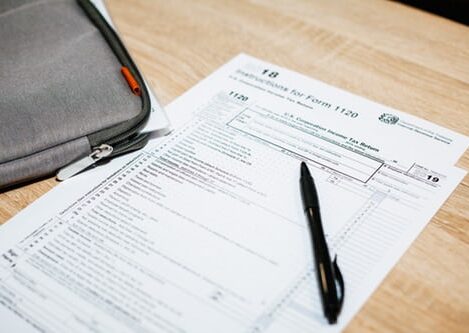Like the federal tax code, Rhode Island tax law now has a 10-year limit on collection of tax debts. But looks can be deceiving. Enacted in July, the law contains important nuances and differs in at least one important way from the federal tax code. Here are the top questions and answers.
What Taxes Are Covered?
Only personal income tax, corporate income tax, sales and use tax, and estate tax are covered under the 10-year limit. The 10-year limit doesn’t apply to any other Rhode Island state or local tax, such as the personal property tax, real property tax, motor vehicle excise tax, gross earnings tax, or employment taxes. The limit also doesn’t apply to any taxes that a person collects and holds in trust for the state but fails to remit, such as income tax withheld by an employer or sales tax collected by a business.
What Can’t Rhode Island Do After 10 Years?
The new 10-year limit prohibits the state from doing two things. First, no notice of deficiency may be issued following the date that is 10 years after the date that the applicable tax return was due. Notably, that’s the case even if no tax return was actually filed. Second, no new action to collect taxes can occur more than 10 years after a tax is assessed.
What if the State Started Collection Action Before 10 Years?
Here’s where Rhode Island’s law really differs from the federal tax code. The 10-year limitations do not apply to the renewal or continuation of the state’s attempt to collect a liability that became final, due, and payable within the 10-year limit. So, as long as the state has taken action to collect a tax before the date that is 10 years after a tax is assessed, the state can continue attempts to collect the tax. Under federal law, the tax liability is discharged after 10 years, with certain exceptions.
What Changed?
Until the new limit, the state had three or six years to issue a notice of deficiency if a tax return was filed. But if no tax return was filed, the state could issue a notice of deficiency even decades following the date that the tax return should have been filed. (Anecdotally, the tax division actually did so on a regular basis.) While these limitation periods are more taxpayer friendly, taken together, the state still has 20 years to get you for taxes if, for example, a notice of deficiency assessing a tax liability was issued at the end of the 10-year period following the tax return due date and no collection action occurred until the end of another 10 years. And if that occurred or, in the more likely scenario, any collection action commenced within 10 years of assessment, the state can attempt to collect the debt forever. As mentioned, that differs from federal law and makes Rhode Island’s law far less taxpayer friendly.
What is Considered a Collection Action?
The type of action to collect taxes that is prohibited after 10 years includes any activity undertaken by the Rhode Island division of taxation to collect on any state tax liabilities that are final, due, and payable under Rhode Island law. That includes, but is not limited to, any civil action involving a liability.
What Happens to a Lien?
Rhode Island may renew a statutory lien that was first filed before the 10-year period on collections elapsed.
Does Anything Stop the 10-Year Period?
Yes, the 10-year period is paused for any period of time a taxpayer is in federal bankruptcy or state receivership proceedings. These suspensions of the 10-year period also differ from federal tax law.




